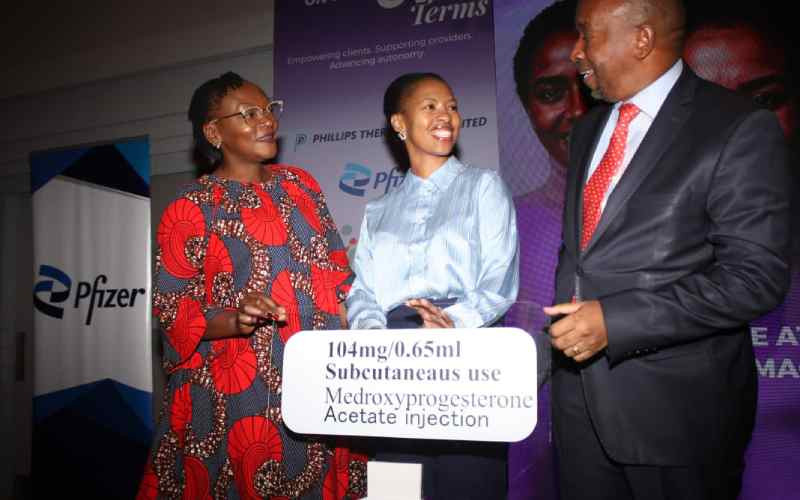Pharmacies to offer self-injectable contraceptives in new access drive

Women seeking contraceptives will now be able to access them directly from pharmacies, following the rollout of a new initiative aimed at expanding family planning services to the private sector.
The move introduces Sayana Press, a self-injectable contraceptive that offers women a convenient, three-month protection option without the need to visit a health facility.
Sayana Press is a prefilled injection system that combines the drug and needle in one device, making it easier for users to self-administer. The Ministry of Health has partnered with private sector players to roll out the contraceptive beyond public health facilities, where it has been available.
Edward Serem, head of the reproductive, maternal, newborn, child, and adolescent health division at the ministry, said the new distribution model is aimed at improving access for women, especially those in remote or underserved areas.
“The good thing about it is that it can be administered by a healthcare provider or a woman can be trained to self-inject herself,” said Serem.
To support this shift, the Ministry has started training pharmacists to offer Sayana Press and provide the necessary counselling to clients.
“Pharmacists now are being trained to offer the family planning method; if a woman wants the contraceptive, they are first of all counselled by the pharmacist,” he added.
Once trained and accredited by the Ministry, pharmacists are allowed to give the injections and offer family planning guidance.
Newton Siele, the Chief Executive Officer of Philips Therapeutics Limited, said the introduction of Sayana Press into the private sector is a game changer.
“This family planning method gives women a choice for contraception for three months. It has been available in the public but not in the private sector, that's why we have partnered with a number of organisations to bring that service to the private sector,” Siele explained.
He said the cost of the contraceptive is comparable to emergency pills, offering women a safer, longer-term option.
“The price of the three-month self-injection is equivalent to one emergency contraceptive. With the three-month protection, the woman can make that decision to consciously protect herself for three months much safer,” Siele added.
The product, manufactured by Pfizer, is regulated by the Pharmacy and Poisons Board to prevent misuse.
Despite its benefits, some challenges are already emerging. Nicola Mutungi, telehealth marketing manager at MyDawa, said price differences between public and private providers remain a barrier.
“Pricing of the product is still a challenge, because the clients are getting it from the public sector for free or even much lower price, they feel that the private sector is too expensive. On our platform, it's about 900. There is still a lack of awareness on the product,” Mutungi highlighted the challenges.
As private pharmacies begin to stock and administer Sayana Press, they are preparing to navigate pricing concerns and limited awareness as they work to expand access.
